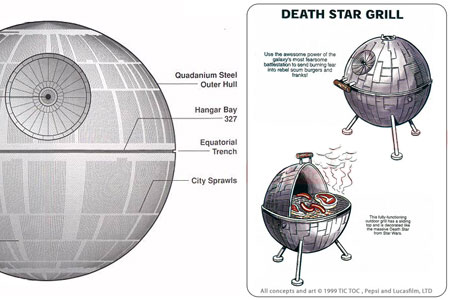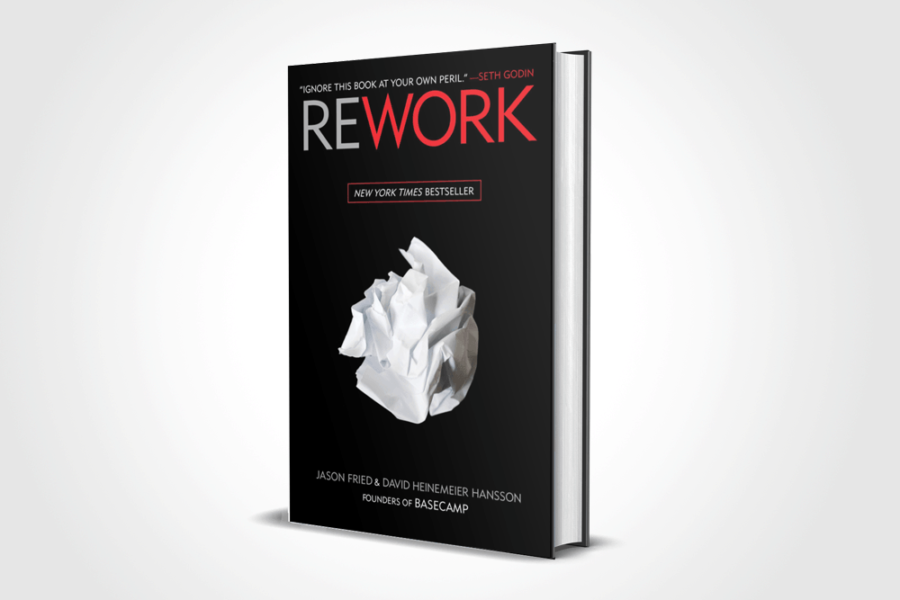Project management is for corporates!
You have all no doubt read countless articles on how best to plan a digital project. They all go into varying amounts of detail about the steps you should take and how if you don’t follow them the whole world will fall from underneath your feet. I happen to agree with this general philosophy and can often be found preaching the same in my day job.
However, the trouble with many of these articles is they’re often written by authors who work for a large corporate and are planning a multi-million pound enterprise digital projects that must use the PRINCE2 methodology and assumes you have weeks of time allocated to plan your project.
For those of us working in small web agencies, or as super funky freelancers, the reality of the digital project planning process is a little different…
In this three part article I hope to fill this gap a little with my humble ramblings on pragmatic digital project management, addressing why it is often skipped, what the advantages are, the two different type of planning personalities that exist and a little insight into the processes and tools I use to help me retain what sanity I have left.
Why plan at all?
Before talking about why it’s often skipped or how to plan, it’s important to discuss why planning is needed at all for digital projects. Simply put, planning a digital project allows you to:
- Define and manage the project scope
- Identify and minimise risks to the project
- Break the allocated project time into manageable phases and tasks
- Determine realistic milestones and client-side deadlines
- Track progress and control the project
- Secure the necessary resource
Although these points sound very much like the corporate digital project management waffle I mention in the opening part of this article, they apply to digital projects of all shapes and sizes. Not being able to satisfy these points at all stages of any sized project can often spell disaster.

Why digital project planning is often skipped
It sounds obvious on paper that planning is a necessary and valuable stage of any digital project, but the reality of day to day digital project management in a small business, or as a freelancer, often makes it difficult to remain disciplined enough to ensure thorough planning is always conducted.
There are many reasons why planning a website project in a small agency, or as a freelancer, is quite different, they include the usual suspects:
- Lack of time
- Lack of digital project planning skills
- Lack of resource available to plan
- Lack of budget
- The belief planning over complicates
- Web project planning is not fun
Lack of time
It takes time to plan a digital project, there’s no getting around it. When feeling the time and cash flow pressures, an agency or freelancer does on a daily basis, it can often feel like stalling design and development work in order to plan is just slowing things down too much, adding unnecessary time and cost to the budgets, stopping the project being completed and that essential last 50% payment coming in hitting your bank. The only real questions to ask are: Does it actually slow the project delivery down and add to the budget?
The default answers to these questions are:
Don’t be silly, of course, it doesn’t slow delivery down or add a budget, it speeds it up and saves you and the client a load of cash.
However, at the risk of undermining my own article, I’m going to say it depends… It really does depend on the digital project, the digital project manager, the web team and the client. In my experience planning has no negative effects but to say you will never bring a project in on budget and on time without planning is a falsehood and I discuss this in Part 2 of this article.
Lack of digital project planning skills
Project planning is not as easy as it looks, I personally didn’t realise this until I had to do it, and despite planning many projects still don’t feel I’m a Jedi-level digital project planner. Sure I’d read some books and a whole heap of articles and tutorials, but the reality is like anything, you learn on the job and from your mistakes. Likewise, as with anything else, the experience is the most valuable commodity with refining any skill.
The truth is many small agencies and freelancers do not yet possess the skills to confidently plan a digital project in its entirety. While I can only implore both to start learning, I do however feel this reason is often used as an excuse to dismiss digital project planning as a “waste of time” (I really have heard this said with my own, rather large, ears. I swear I almost fainted).
But I can empathise with this attitude… let’s use an obvious analogy to explain – homemade curry.
I like a curry as much as the next person, I also like to cook. I’m told making a curry from scratch is ten times better than a takeaway or using a bottled sauce. Every part of me knows this must be true and yet I don’t make one from scratch myself, why? Because it’s just not worth it… the bottled sauce is fine and tastes good – at least that’s what I tell myself and others. The truth is, to me, making a curry from scratch requires a lot of fiddling takes ages and looks really complex regardless of the rewards of a homemade one.
To the uninitiated used to not planning digital projects, yet happily making a living, it can seem a little daunting to contemplate starting to plan using any processes given the stigma processes carry of being slow. Like with my curry, any new skill being used for the first few times will add a significant amount of time to the process you’re used to, you will make mistakes, perhaps a few horrific ones, but once you’ve mastered it, you’ll be quick, you’ll reap the rewards, see the benefits and wonder why you ever had such a problem with it.
Damn, now I actually want a curry.
Lack of resource available to plan
As I said before, planning takes time and that is something few of us can say we have in abundance. Even dedicated digital project managers are all too often stacked with too many projects and too little time to plan effectively.
The only advice I can offer here is to try and shut yourself away from the world for a day or two, resist the temptation to deal with e-mail and phone calls, and plan that project. This is easier said than done, but I always try to remind myself that it’s quite possible I could’ve been ill for those two days and if I had been would have probably not moved any projects forward, dealt with e-mail or taken phone calls – what’s the difference?
Lack of budget
This is often a contentious issue because a salesman will not want to add a row in their project estimate to the client that ups their final quote price for something that isn’t a production task – however this really isn’t necessary. If you charge for digital project management time, and have been a good boy or girl and been tracking project management time from previous projects in order to identify trends like digital project management tends to take between 10% -20% of the total project time, you should always be able to allocate an adequate amount of time to a project timescale or estimate in order to cater for the time required to manage the project, including the planning phase.
Sorry folks, lack of project budget is just not a justifiable reason for not planning your project. If you have to, do it for free, you will undoubtedly recoup any time spent on fewer design and functionality revisions in the long-run due to the planning you did.
The belief planning over complicates
Although you will often hear this line from the ‘dive in and get started’ planning personality mentioned in Part 2 of this article, and despite it not being a popular answer amongst the digital project managers out there, the truth is they can sometimes be right.
When you’re up against the clock and the pressure is on in a small agency or freelance role, and instead choose to update your GANTT chart each time a task is delayed by 3 hours, or insist on wireframing the 404 error page, chances are you are focussing too much on the planning when you should be focussing on the doing.
That said, you also have to know when to stop to update your schedule or perform the most crucial digital project management tasks so that you can maintain a level of control over your project. Not planning when you know you should is a dangerous habit to get into and trust me, before you know you have several projects all going tits up and in ten different directions and all because you chose to do when you should have planned.
Being a good digital project manager in a busy small business environment means you have to be wise and flexible enough to know when to plan and when to just get on and ‘do’!
Digital project planning is not fun
This heading is slightly misleading, I enjoy digital project planning for two reasons:
- It’s just what I happen to enjoy doing these days
- It feels like a lovely warm fuzzy blanket at the beginning of a project to know you have identified the risks, broken down the project and can visualise every step, including the end
As with so many of the most critical parts of digital project management, like producing detailed estimates, to most, it’s just not exciting or sexy and there is only one cure – try planning your next few digital projects that warrant planning before starting production and see if it seems to help or hinder.
If you do it right, remain disciplined and consistent I would wager ownership of my cat Spiderpig that you won’t look back – if I’m wrong I will personally cook you a curry from scratch…
Why small digital agencies and freelancers should plan thoroughly
Major reasons small web agencies and freelancers should get into the habit of planning digital projects thoroughly is so they can begin to develop some repeatable processes that they can rely on for every project, or even apply the skills and techniques to parts of their projects if full planning is just not possible.
If anything, I believe digital project planning, in some respects, is more important to a small agency or freelancer because there is less room for mistakes given most are in a constant state of survival mode. Yes a corporate digital project needs planning, but a mistake is less likely to put them out of business! In our world, and as I’ve said in previous articles, one or two whoppers of mistakes can mean the end of a business…
Melodrama aside, I believe it’s time for small web agencies and freelancers to up their game on the digital project management side of things.
We are maturing as an industry at a rapid rate and I believe the days of fumbling our way through projects in our small offices or bedrooms are coming to an end.
We live in an age where clients are becoming more web savvy and quick to spot a disorganised supplier, and where they are more likely to hire, or work with again with, an agency or freelancer who can demonstrate a certain level of professionalism, competence and consistency when it comes to planning and running their projects.
In Part 2 of this article, I will describe the two types of people that plan/manage digital projects and the advantages and disadvantages of both, and in Part 3 I will go into more detail about the techniques and tools I use when planning digital projects… stay tuned.








Sam – you make some excellent points.
The appropriate level of planning will always help not hinder delivering the project. I think the key here is ‘appropriate’. Project planning gets a bad name from those who believe that…
1 The schedule/gantt chart etc = the plan
2 The quality of the plan can be measured by how many lines the schedule has.
We’ve all seen people hefting around their 3000 line gantt chart which stipulates that Bob will complete task no. 2846 in six months time at 3.47 on a Tuesday afternoon! Does it ever turn out that way? Of course not. When you plan a bike ride you don’t plan for the fact that there may be a pot hole 3 miles ahead – you plan a basic route then keep looking ahead far enough to avoid obstacles before you hit them.
Unfortunately many people equate project planning with the 3000 line scenario above.
For me planning is more about ‘walking through’ the project in your head, anticipating the big issues which will need to be resolved now and the small issues which we need to look out for on the way. Its the process of planning and working out the best way to approach the task at hand that’s important not the pieces of paper which you end up producing.
When we plan we are working through what the end result must be; deciding the best way to get there; building in sufficient checks that we don’t go off on a tangent; and anticipating the stuff that could trip us up so we can have something up our sleeve ready to deal with it.
You don’t get a second chance with a project – its always a unique “one off” – that set of things, for that client, for that reason etc. You wouldn’t put on a play without a dress rehearsal so why do we get our heads down and start ‘working’ on projects without the ‘mental dress rehearsal’ that an appropriate amount of planning gives us?
Cheers
@JimAnning
This is a great post, I am really enjoying reading your blog!
I completely agree with what you’re saying, and one of my new favorite quotes is this one I got from a requirements book I’m reading: “If you don’t have time to do it right, when do you have time to do it over?”
Yes, in the small agency world we definitely feel the push to get moving quickly and management doesn’t always recognize the importance of good early planning. Until it’s too late, and then the team loses time going back and figuring stuff out.
Also, as for making estimates/schedule for the tasks in the beginning, it can be very difficult to make good estimates for tasks that might not be clearly defined yet, or are further along in the project. So, best approach in my opinion is to make a ranged estimate and then revise as the work involved becomes more clear. The hours required and schedule will be in a wider range in the beginning but narrow as the project continues.
Good article Sam.
Digital/web media is at a disadvantage in many respects, as the industry has been spawned in a lot of cases out of small operations where project planning and management come as a secondary consideration.
Now, several years down the line, as many agencies grow and projects grow with them, planning and management of projects is becoming recognised as a greater priority and rightly so.
Due to the nature or digital/web development, it sits outside of many conventional methodologies and requires an application of a mashup of methodologies in many cases. Or the application of specific methodologies to certain projects and others to others.
But planning, and then management of that planning is essential, even if it is just the oversight to know what’s going on and where everything should be in it’s cycle.
Common sense, experience, a level head, ability to manage multiple tasks and soft skills come before any methodology for me.
@Jim, Too true about projects being one offs. And because of that it can take months before the success of the project (and your PM skills) can really be plain to see to all! “Appropriate planning” you’ve encapsulated by whole post in two words ;-)
@Dina, ha, love the quote and its SO true!!! It’s also true about management often wanting to skip a proper planning stage, but I think they have their own set of pressures like cash flow and wage payements that. It’s a constant balancing act I think and that we just have to do our best as PMs to prove the value of planning with every opportunity we get.
@Ed, A mashup of traditional PM skills is most defintely a perfect description! The fact that web project management is such a mashup is what really inspired me to start this blog. I just could’nt find anyone talking about the “real” web pm role in small digital agencies today!
Thanks for your comments all…
Great post – and great blog!
Thanks Sam. Up until now I have always started my web projects without any formal planning. It’s nice to hear that it’s worth it from someone speaking realistically.
Can you recommend any project planning / management tools, preferably free?
@Chris, thanks very much. I understand why many don’t formally plan, but as I did back in 2009 and more experience, I still believe this.
What kind of tools are you looking for? Client communication / collaboration? Scheduling?
Hi Sam,
Thank you for your response.
I’m not entirely sure which tools, because I have never really used any before. I guess I mean stuff like gant charts, wireframes, hour tracking etc. basically anything that you would need to use before the implementation of the project.
Thanks,
Chris
Thank you for this article. I’m one that loving coding but I understand the importance of planning. I found that during that planning I get the thing of nifty and cool way to implement things so this is start to become fun. Anyway thanks for the inspiring article.